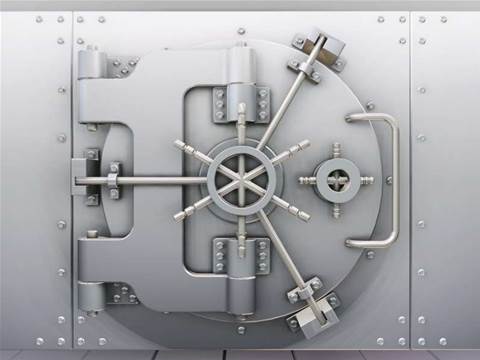Long lauded as the next generation of computing, quantum computing is expected to herald a world where technological advancement is no longer bound by Moore's Law. Scientists speculate the applications of quantum computing to range from more accurate clocks, to finding cures to modern day diseases and even to mapping the human brain.
In the wrong hands, however, the increased computational power could be disastrous. Security measures that might take current computers thousands of years to crack will be solved by quantum computers within a few hours, rendering digital encryption all but obsolete.
Current day encryption systems employed in electronic banking, secure communications and credit card transactions rely on a cryptographic key that is only known by the transacting parties.
The key is used to encrypt and decrypt information and can only be cracked by an attacker who is able to determine the prime factors of a large number through a mathematical process known as factorisation.
Factorisation is a difficult, time consuming task for classical computers, which are designed to approach and tackle one problem at a time. Not so for quantum computers, however, which are able to tackle multiple problems in parallel by harnessing a property of quantum physics that allow particles to be in two states simultaneously.
Through a mathematical concept known as Shor's algorithm, which is a theory designed with quantum computing in mind, a quantum computer will be able to solve factoring problems as well as a number of other mathematical problems on which current day encryption is based.
“It is known that quantum algorithms can compute certain problems much faster than their classical counterparts,” said Enrique del Barco, Assistant Professor of Physics at the University of Central Florida.
“Factorising a large number is a task that would take the most powerful classical computer thousands of years, and this is the reason for which current cryptography codes, used to keep the security of our electronic transactions, are based on the factorisation of large numbers.”
“It turns out that factorisation is one of the problems that a quantum computer would solve in a few hours,” he said.
Fortunately for security stakeholders, quantum computers are still many years away from reality. As governments and corporations come up with an unending list of potential uses for the technology, theoretical debates rage on about if practical quantum computers should be based on superconductors, transistors or spintronics.
Even so, security experts are regarding the technology with a wary eye.
“We all use cryptography every day, and most of us do so without knowing it,” said Robin Balean, Solutions Architect at VeriSign Australia. “Certainly the consequences could be dire if all electronic commerce were suddenly rendered insecure.”
“Although still many years away, it turns out that there is such a threat,” he said.
One way of circumventing security gaps caused by Shor’s algorithm is to use some lesser known public key encryption algorithms currently believed to be not vulnerable to quantum methods. Balean listed the Diffie-Lamport-Merkle signature system, the NTRU encryption system, the McEliece encryption system, and the HFE signature system as some examples.
But while such cryptographic techniques rely on advanced mathematics, Balean expects cryptography of the future to rest in the hands of physicists.
“It is certainly reasonable to assume that quantum encryption will be practical long before quantum computers become a reality,” he said, noting that there exist commercial systems for quantum key exchange that are in use today.
“Although the advent of quantum computers would be the nail in the coffin for many of the cryptographic algorithms in use today, there are other algorithms and technologies ready to take their place,” Balean said.
“I believe we can look forward to an age of quantum computers rather than needing to fear that they will make our computing insecure.”
The University of Central Florida’s del Barco agrees, expecting quantum computing to provide solutions to any security problems it might cause.
In fact, del Barco said, secure transactions in the age of quantum computing will far surpass the security of today.
“When a qubit [quantum bit] of information is sent from one place to another, as would be the case during an online purchase with our credit card, if one wants to read the state of the qubit it will change its state and the sender will know about it, and the system will automatically cancel that particular operation, leaving the consumer safe,” he explained.
“In other words, quantum transferring of information is an anti-spy process that will make our electronic transaction infinitely more secure than today.”
“However, the appearance of quantum computers won’t represent a problem for the security of our transactions,” del Barco concluded.
“Just the opposite; quantum information and computation technologies will make the transfer of secret information to be unbreakable.”
Quantum computers: technological deliverance or the end of security?
By
Liz Tay
on Mar 11, 2008 8:14AM

Got a news tip for our journalists? Share it with us anonymously here.
Partner Content
.png&h=142&w=230&c=1&s=1)
How mandatory climate reporting is raising the bar for corporate leadership

Shared Intelligence is the Real Competitive Edge Partners Enjoy with Crayon

Beyond the box: How Crayon Is Redefining Distribution for the Next Era

How Expert Support Can Help Partners and SMBs Realize the Full Value of AI

Think Technology Australia deliver massive ROI to a Toyota dealership through SharePoint-powered, automated document management







.jpg&w=100&c=1&s=0)








_(1).jpg&q=95&h=298&w=480&c=1&s=1)


